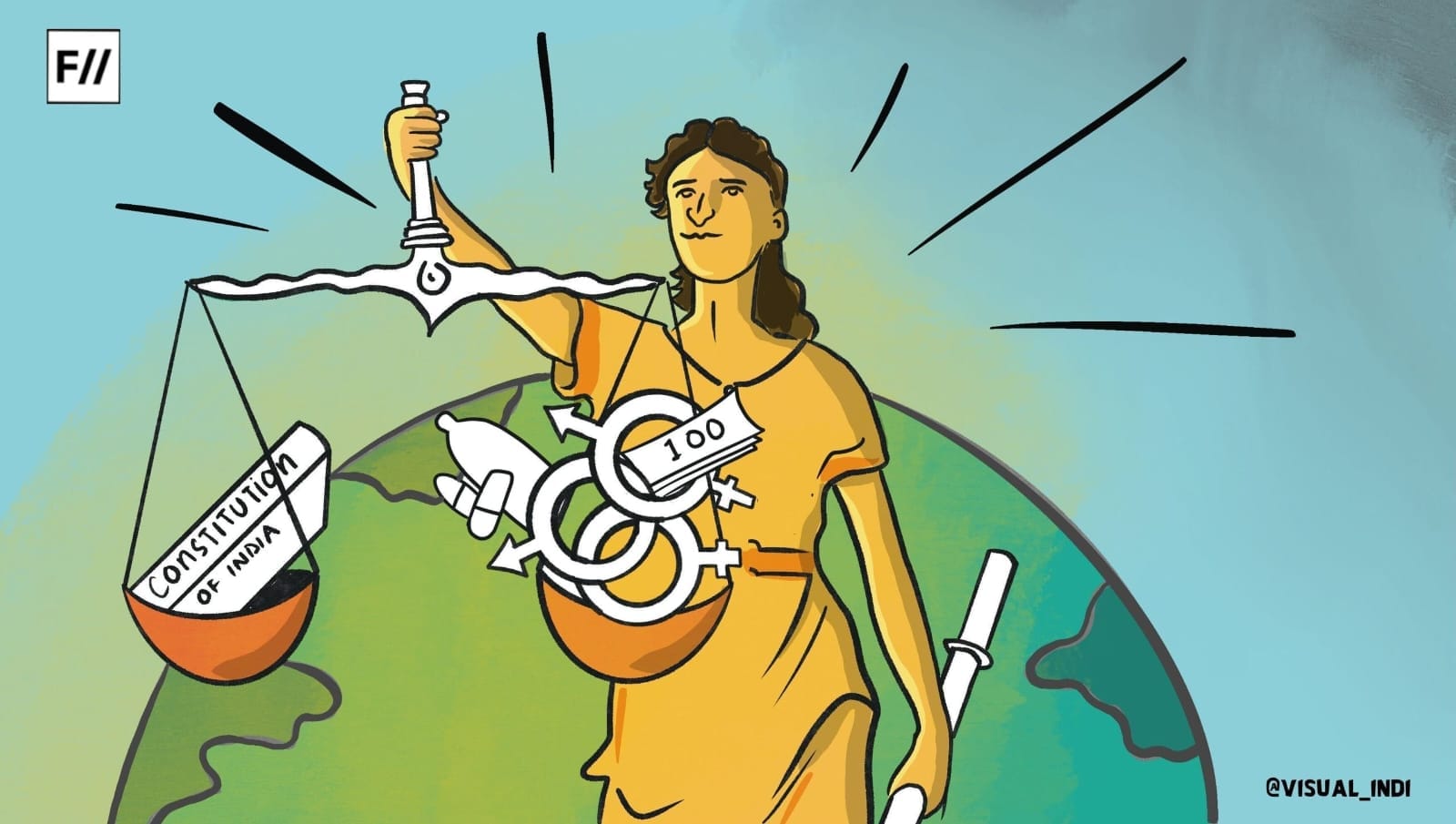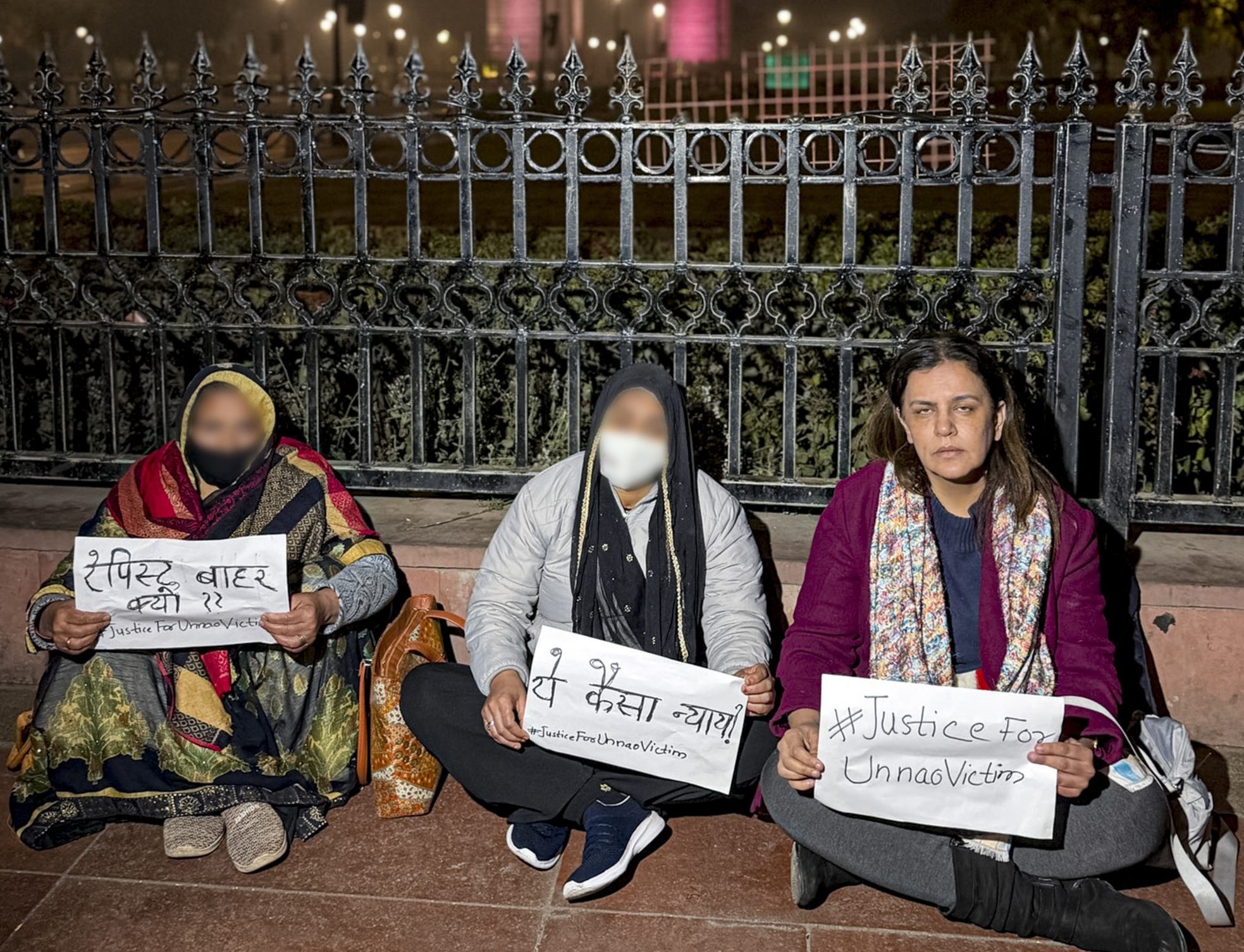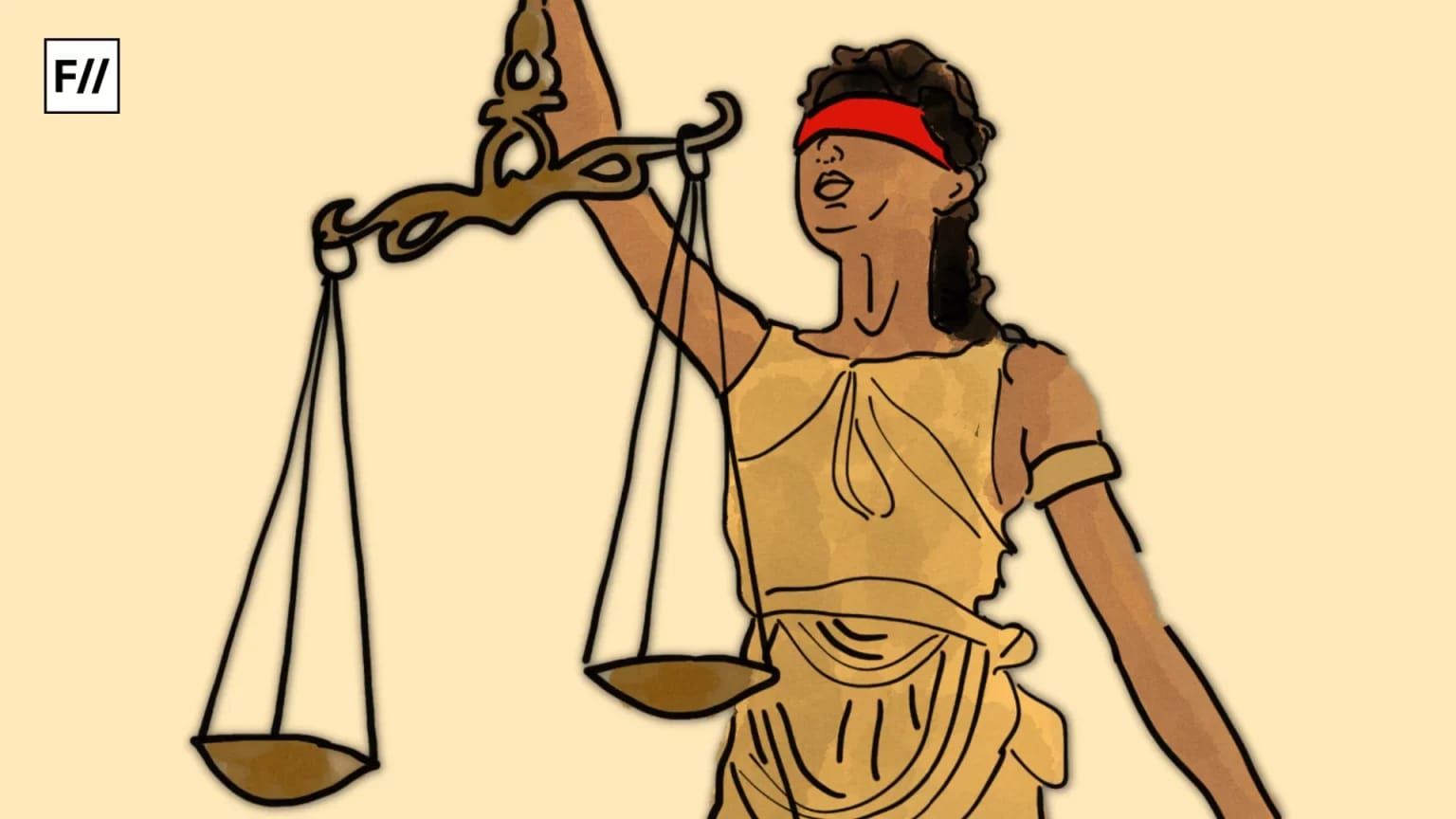In a recent judgement, the Chhattisgarh high court held that a husband’s act of non-consensual sex with his wife is not an offence under section 377 of the Indian penal code. This judgement has triggered a big debate and criticism. This ruling gives protection to the husbands doing forced sexual acts against their wife’s will, giving rise to serious concerns about married women’s rights to decide what happens to their bodies, and the long existing patriarchal norms in India.
This ruling gives protection to the husbands doing forced sexual acts against their wife’s will, giving rise to serious concerns about married women’s rights to decide what happens to their bodies, and the long existing patriarchal norms in India.
The ruling reinforces the age-old belief that the women after getting married, lose the right to consent, opposing the modern global, legal and social belief that recognises the partner’s consent as a fundamental right. Earlier in 2024 the MP high court also ruled that a husband’s unnatural acts with his wife aren’t rape, making consent irrelevant. In a time where the voice of women empowerment is high, India’s legal system continues to protect the husbands from responsibility, exposing the deep flaws in the country’s legal system.
Justice Narendra Kumar Vyas, in his single bench ruling, stated—
‘Thus, it is quite vivid, that if the age of wife is not below age of 15 years, then any sexual intercourse or sexual act by the husband with her wife cannot be termed as rape under the circumstances, as such absence of consent of wife for unnatural act loses its importance. Therefore, this Court is of the considered opinion that the offence under Section 376 and 377 of the IPC against the appellant is not made out.‘
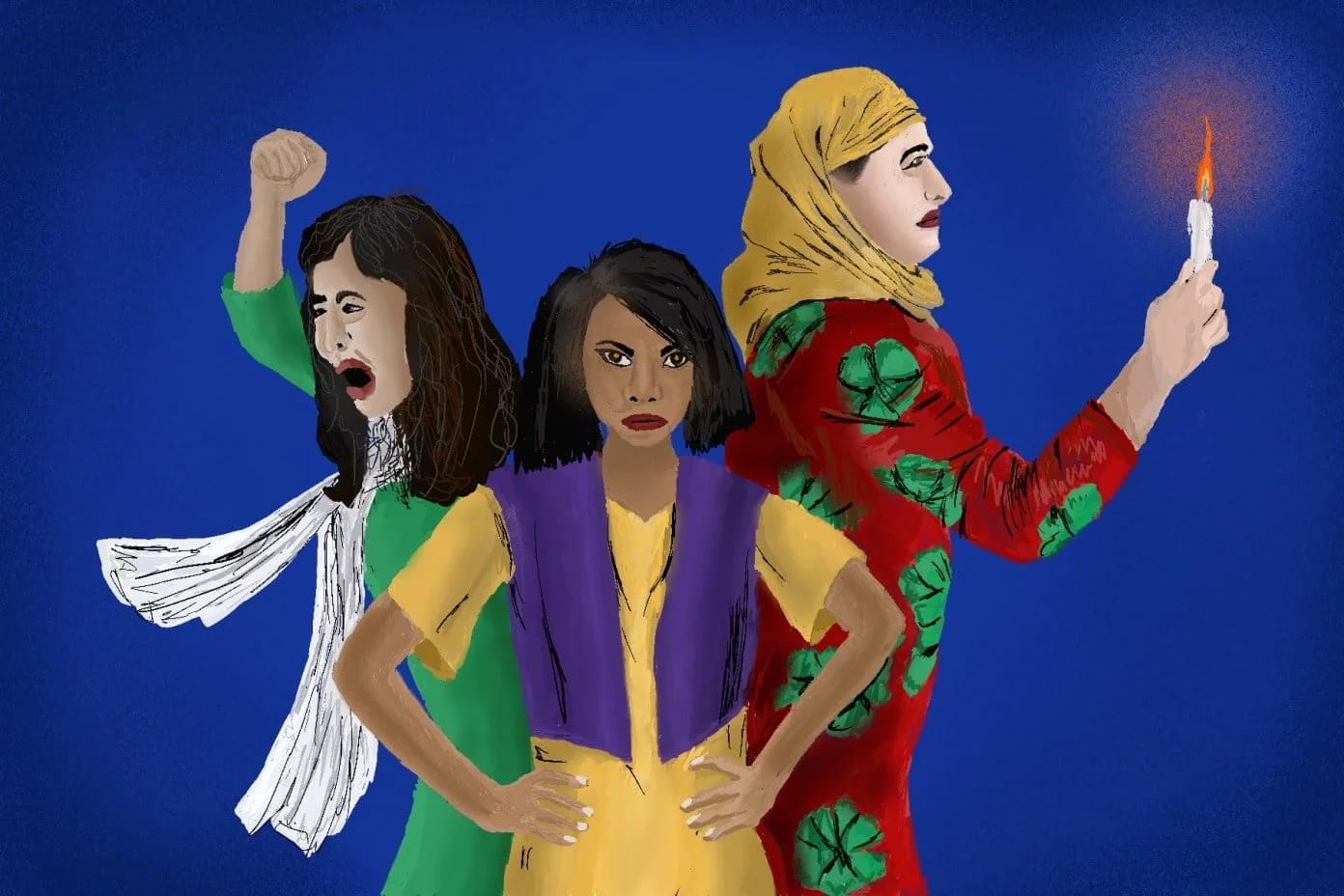
The court acquitted a husband convicted of rape and unnatural sexual offence. The man allegedly subjected his wife to unnatural sex. He allegedly inserted his hand in his wife’s rectum after which the wife was admitted to a government hospital due to the complaint of pain. According to doctors the wife died of peritonitis and rectal perforation. The wife recorded her dying declaration based on which the lower court gave a punishment of 10 years in jail to the husband.
The court’s decision: a dangerous precedent
The judgement is concerning due to many different reasons. It wrongly assumes that marriage gives sexual rights to a husband over the body of his wife even without her consent. In believing that a husband can have non-consensual “unnatural” sex with his wife without it amounting to an offense under Section 377 IPC, the court has established a dangerous legal vacuum that makes it harder for women to approach courts for justice.
Indian law itself does not criminalise marital rape under Section 375 IPC, which has a controversial exception to the effect that a husband cannot be prosecuted for rape for non-consensual vaginal intercourse with his wife. Now, with this judgment, even forced unnatural sex is not a crime within marriage, and no legal recourse is available to wives who are so exploited.
Legal inconsistencies: contradicting Supreme Court judgments
The first question asks why marriage should protect against sexual violence? The ruling is a clear sign that India is still not recognising consent as a fundamental right for everyone, whether they are married or unmarried. This type of thought is also not in line with several Supreme Court decisions that have considered the importance of personal liberty and individual rights.
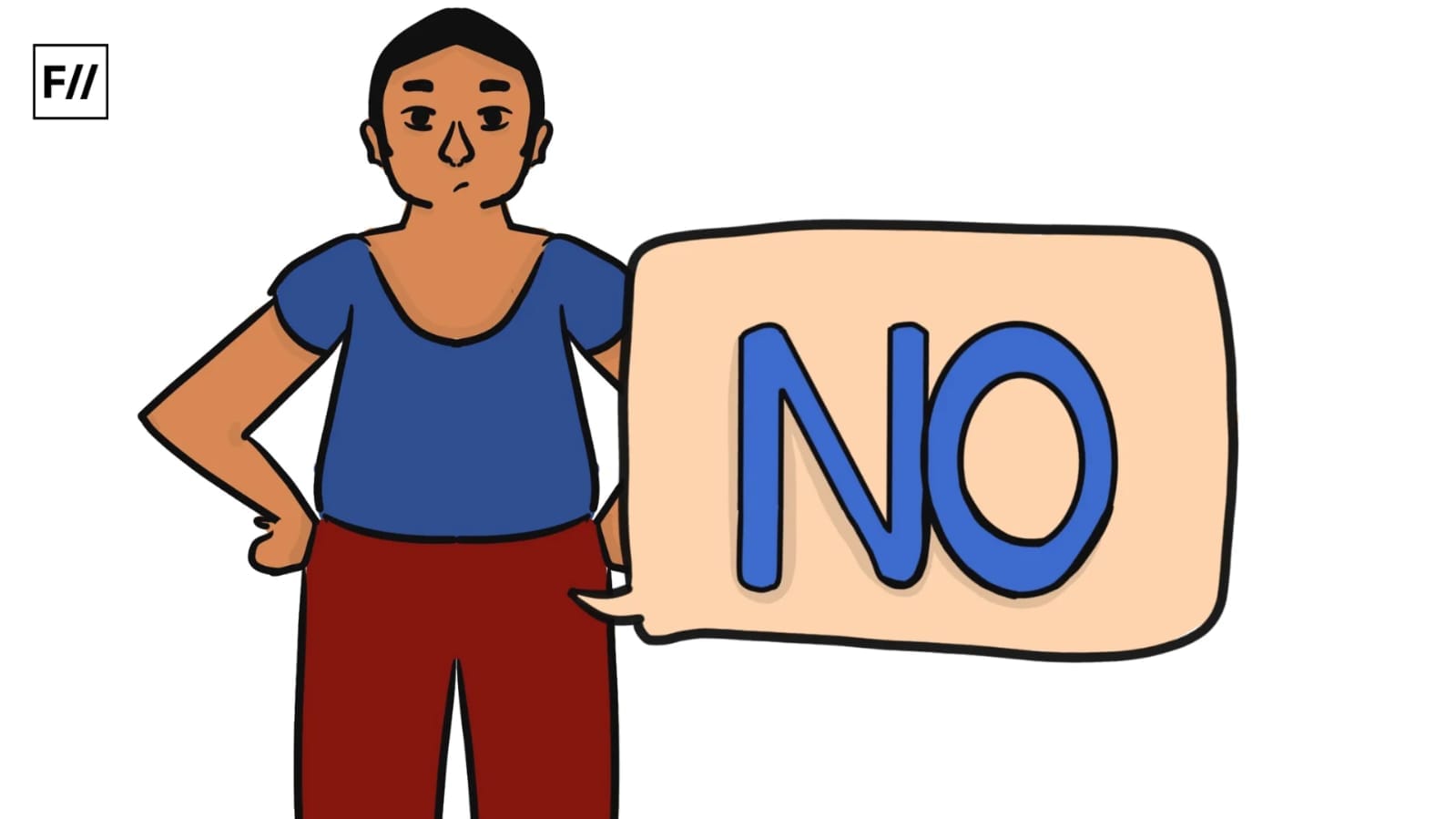
One of the important rulings was Independent Thought v. Union of India (2017), in which the Supreme Court ruled that sexual intercourse with a minor wife (15-18 years) constitutes rape. This ruling altered a part of the exception of marital rape for minors. It was an important ruling as it acknowledged that marriage does not remove a woman’s right to refuse sex.
The Chhattisgarh High Court ruling is a step backward by granting husbands complete immunity for compelling unnatural sex on their adult wives or even minor wives of age more than 15 years old. This is contrary to the principle in the Independent Thought judgement that a wife is not the property of only her husband but a human being with rights.
The judgment is also contrary to Navtej Singh Johar v. Union of India (2018), which legalised consensual same-sex relations and clarified that Section 377 IPC is only applicable to forced sex.
The judgment is also contrary to Navtej Singh Johar v. Union of India (2018), which legalised consensual same-sex relations and clarified that Section 377 IPC is only applicable to forced sex. The Supreme Court specifically stated that all acts of forced sex, including unnatural sex, are criminal. In exempting husbands, the Chhattisgarh High Court has created a legal issue: if forced unnatural sex is prohibited everywhere else, why in marriage?
The social implications: normalising sexual violence in marriage
Besides this ruling’s implications with law, the ruling has serious social implications. One of the important implications of the ruling is that it upholds husbands’ dominance of their wives. The ruling indirectly implies that marriage gives husbands sexual rights over wives without any restrictions and women are the objects of their husband’s lust.
This orthodox perspective is consistent with beliefs that, upon marriage, a woman gives up the autonomy to decide. By making unwanted sex legal, the court is instructing women that their autonomy and dignity under marriage are secondary to those of their husbands. In a culture in which patriarchal gender norms already prevail, this judicial affirmation of husbands’ sexual rights makes gender equality an unattainable ideal.
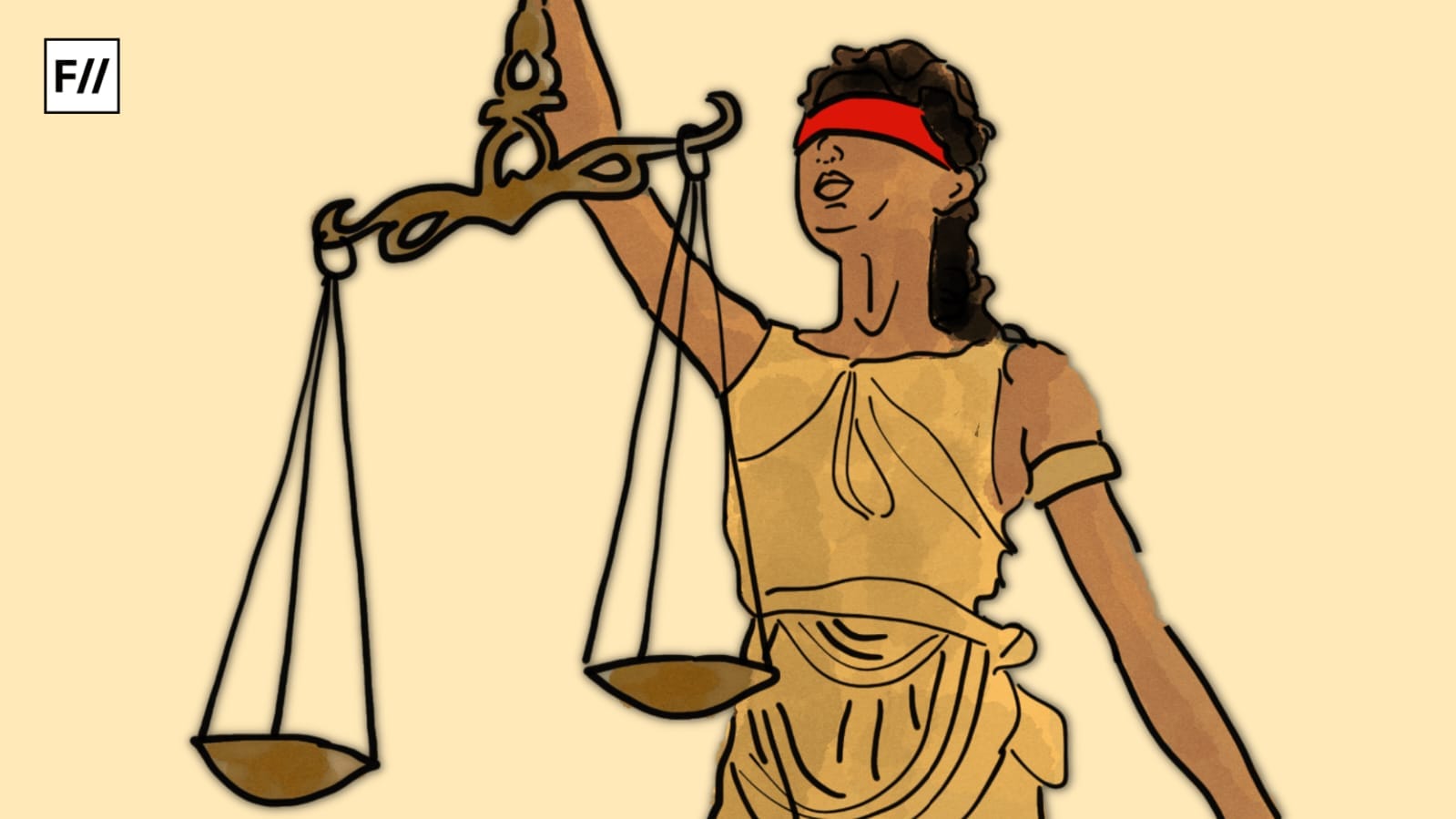
Another main consequence is that it silences survivors of marital sexual violence. Already, numerous women who suffer sexual violence in marriage hesitates to report it because of social pressure, fear of family problems, and lack of support. With this ruling, the judicial system has now made it even harder for victims to ask for justice, as it has clearly said that their problems will not be considered a crime. When survivors know that the law does not safeguard them, they are more likely to stay quiet, continue to be abused, and suffer extreme emotional and mental harm. This not only harms individual victims but also continues to create a culture where marital sexual violence is accepted.
This decision worsens the issue of domestic violence. Sexual assault usually is not an isolated event; it happens alongside other abuse, i.e., physical, emotional, and economic violence. The court, by permitting husbands to escape penalty for non-consensual unnatural sex, has given greater authority to the abusers, making it more difficult for women to exit violent marriages. In India, where domestic violence is prevalent and mostly unreported, this decision creates more wide difference in authority between wives and husbands, making it more difficult for women to seek assistance or get out of violent marriages.
Also, the judgment goes against India’s attempt to empower women and bring about gender equality.
Also, the judgment goes against India’s attempt to empower women and bring about gender equality. The government has initiated several schemes to better the rights of women, like the Beti Bachao, Beti Padhao campaign and the Nirbhaya Fund for women’s safety. But when court rulings fail to refer the fundamental ideas of consent and a person’s ownership of their own body, these efforts get reduced. Judicial rulings decide how society see the initiatives, and when courts fail to believe that a wife has a right to refuse, they unwittingly make the communities believe that violence in marriage is acceptable or no big deal.
This ruling also sends a dangerous message to generations to come. Young girls who are growing up in India will know that marriage deprives them of the right to control their own bodies, and young boys will think that consent in marriage is not required. Such beliefs give rise to violence against women and make it more difficult for society to progress towards relationships based on respect.
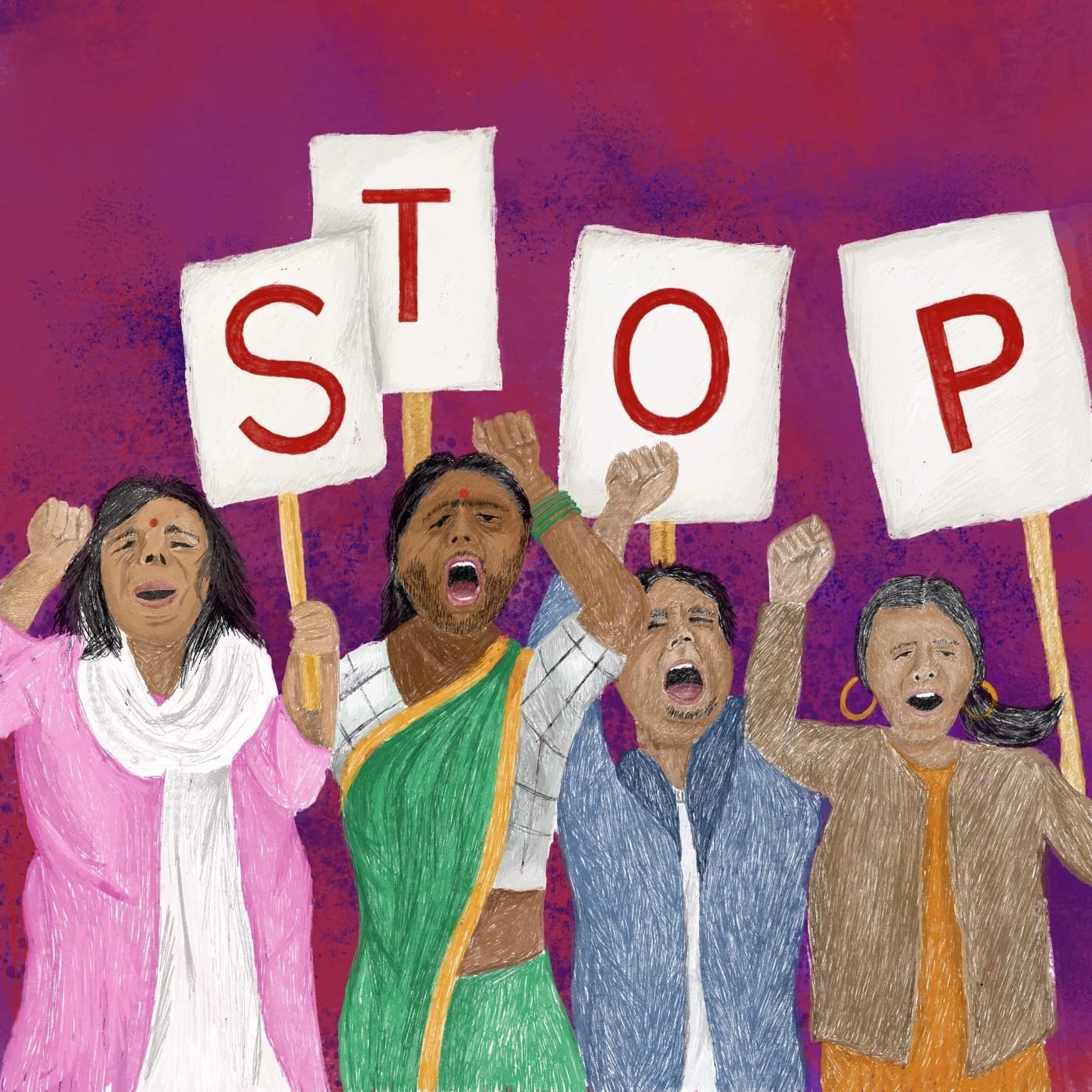
To conclude, this ruling also highlights the importance of reforms in the laws in India. Firstly, we should amend Section 375 IPC by removing the exception of marital rape, so that consent is made necessary for all sexual acts, whether individuals are married or not. Section 377 IPC should also be changed to include that unnatural sex without consent is a crime, no matter the relationship between the accused and the victim. In addition, programs should be started to train judges to apply laws in a way that helps gender justice and respects women’s rights. Public awareness campaigns are also necessary to challenge deep rooted beliefs about patriarchy and educate people about the necessity of consent in marriage.
The judgement of Chhattisgarh high court is a setback in the struggle of women empowerment in India. By not recognising the women’s right to consent the judgement have only given the patriarchal beliefs more value. It is a need of our time to recognise the inconsistency in Indian law and remove them effectively. Thr Government and Judiciary should consider criminalising any form of sexual violence no matter the relationship between the accused and victim. The government and Judiciary should act immediately to ensure the bodily autonomy to every individual.
